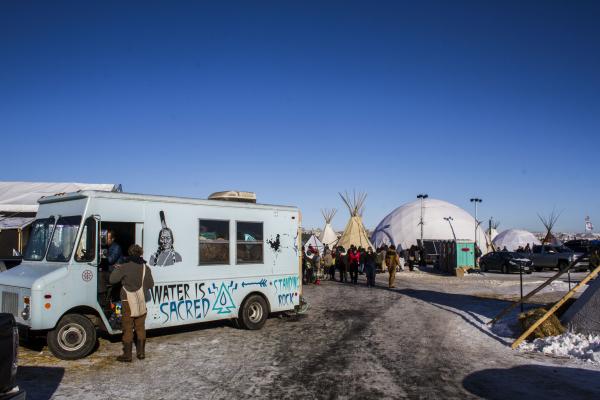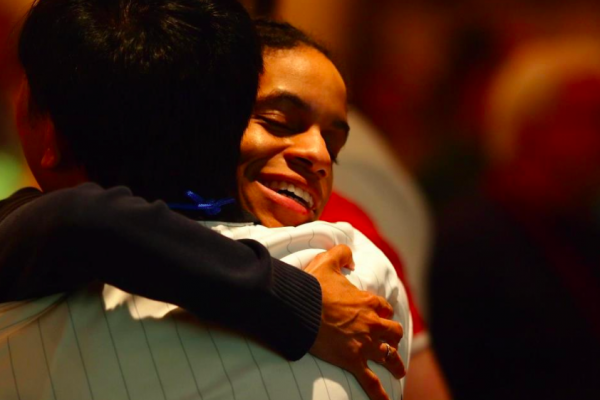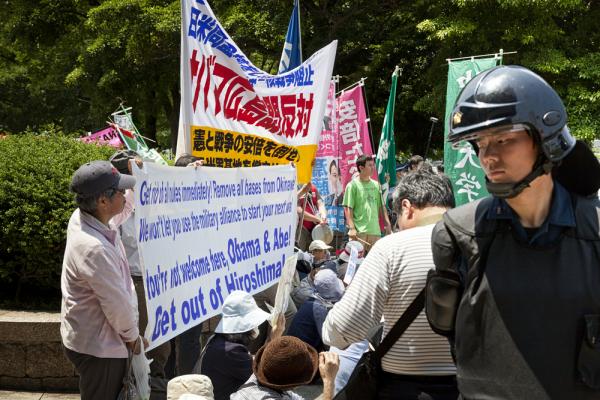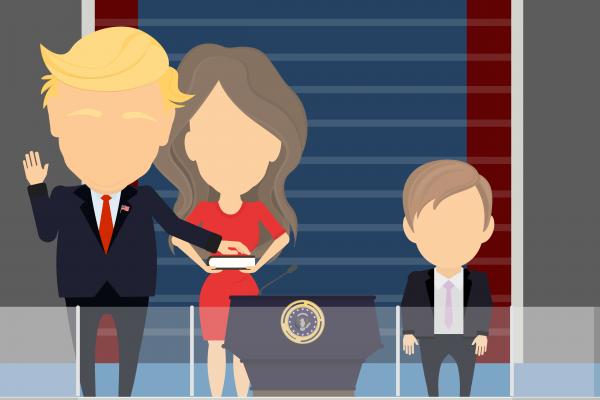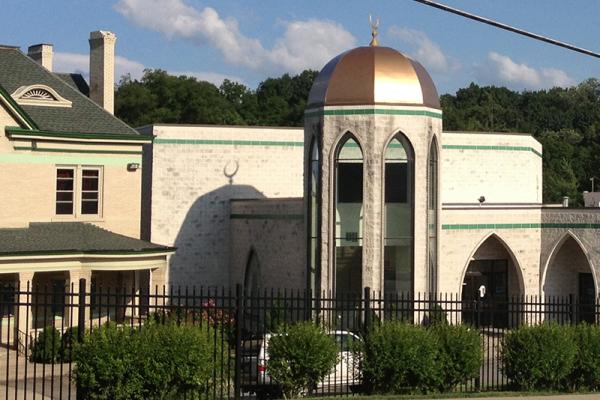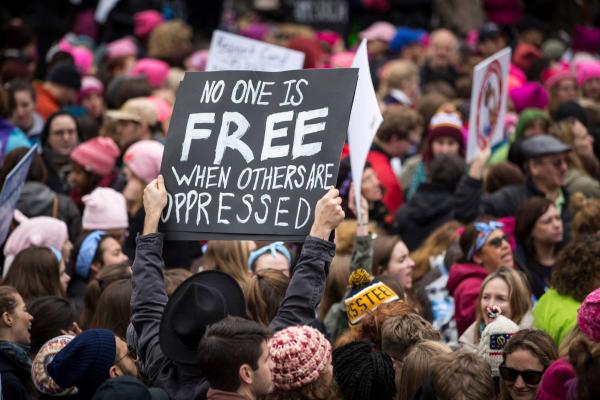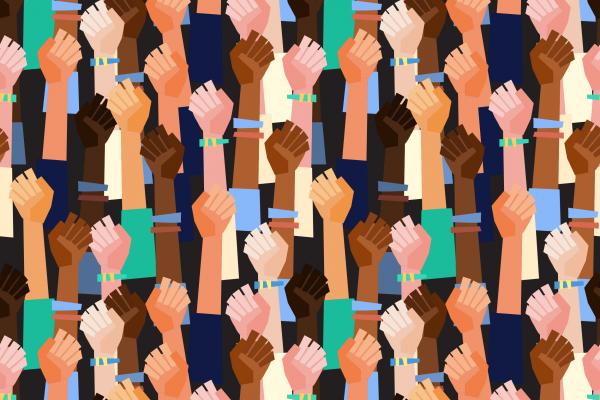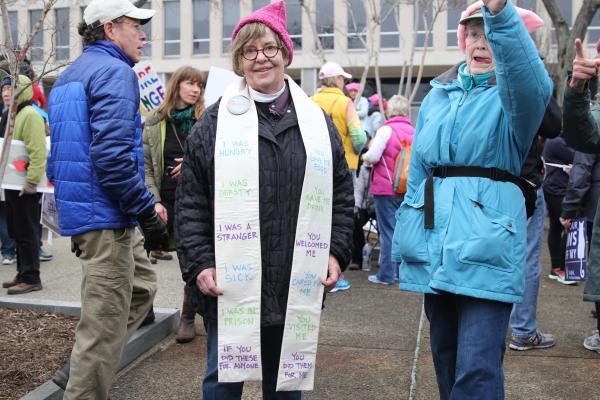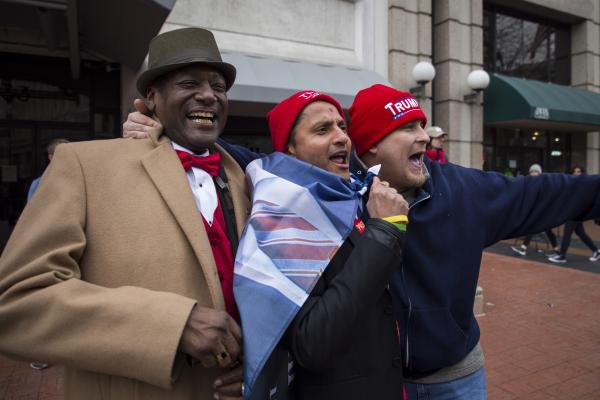Today, President Donald Trump signed an executive action greenlighting the Dakota Access Pipeline, which had been halted to seek alternative routes. The original route, under Lake Oahe, would have threatened the Standing Rock Sioux’s drinking water and sacred lands.
At GCNC in 2016, Rev. Broderick Greer spoke to this problem in his keynote address, “Theology as Survival.” In it, he said, “I survived — and am surviving — the strain of being subject to white heterosexist patriarchal theology.”
After the death of Michael Brown, Greer became active on Twitter using the #blacklivesmatter hashtag, and found “stories of black and brown people oppressed, silenced, and erased by white church leaders, pastors, and theologians — or theobrogians, as some of them are affectionately called. And the stories were like mine: incomplete, sore, familiar, frustrated,” he said.
Ten days before Donald Trump's inauguration, the former mayor of Hiroshima sent the president-elect a letter calling on the incoming U.S. administration to lead on nuclear non-use in Northeast Asia.
"Keenly aware that your decisions on matters related to nuclear weapons will affect everybody in the world and especially those of us living in Hiroshima, we, Hiroshima citizens and hibakusha (A-bomb survivors), expect these decisions to be wise and peaceable," Tadatoshi Akiba, Hiroshima's former mayor, wrote.
As I listened to President Donald Trump’s inaugural address on Friday, I couldn’t help but be reminded me of a book titled The Anti-Intellectual Presidency by Elvin T Lim.
A Cincinnati area mosque announced it would join the burgeoning church sanctuary movement in the U.S., possibly becoming the first Islamic house of worship to do so.
The announcement came on the eve of the inauguration of President Donald J. Trump, who took a hard-line stance on immigration and proposed a national Muslim registry during his campaign.
On Jan. 21, more than 1 million women and men around the world rose up and became part of a resistance.
Here are just a few of those faces — six people who showed up to make their voices heard at the Women's March on Washington. They each marched for individual reasons, but found common ground among the crowd.
It is the covenantal relationship with God that calls what one must do: Do justice, love mercy-kindness, and walk humbly with your God
This tremendous love from God compels us to act similarly to our fellow humans. God has loved us and will continue to love us. Accordingly, we must love one another, regardless of any governmental system, whether Moabite or Assyrian — or anything modern
Last week, organizers for the Women’s March on Washington encountered pushback on multiple sides for removal of pro-life sponsors, leading many to wonder if there was space in the movement for Christians or women who are opposed to abortion. But many who attended the march on Jan. 21 were driven there by their religious convictions — saying President Donald Trump’s positions “violate the gospel” by showing a lack of compassion for Muslims, people of color, and women.
America is beautiful because we have the power to define what it means to be American.
Too often, we immigrants define what is "American" by what white culture tells us it should be. We internalize colonialism and let it run thickly in our veins: We give our offspring English names because we’re embarrassed of our language, or afraid that our children won’t be accepted with anything too “exotic.” We eagerly give up a culture that so proudly raised us. I’ve watched as we villainize black people and turn our backs on undocumented immigrants.
Their signs spoke of support for abortion rights, immigrants, Black Lives Matter, and science — and of their disgust with newly inaugurated President Donald Trump.
Politics drew hundreds of thousands to the Women’s March on Washington on Jan. 21. But many said they were also compelled by their faith.
